|
Speakers
(in
alphabetical order) |
|
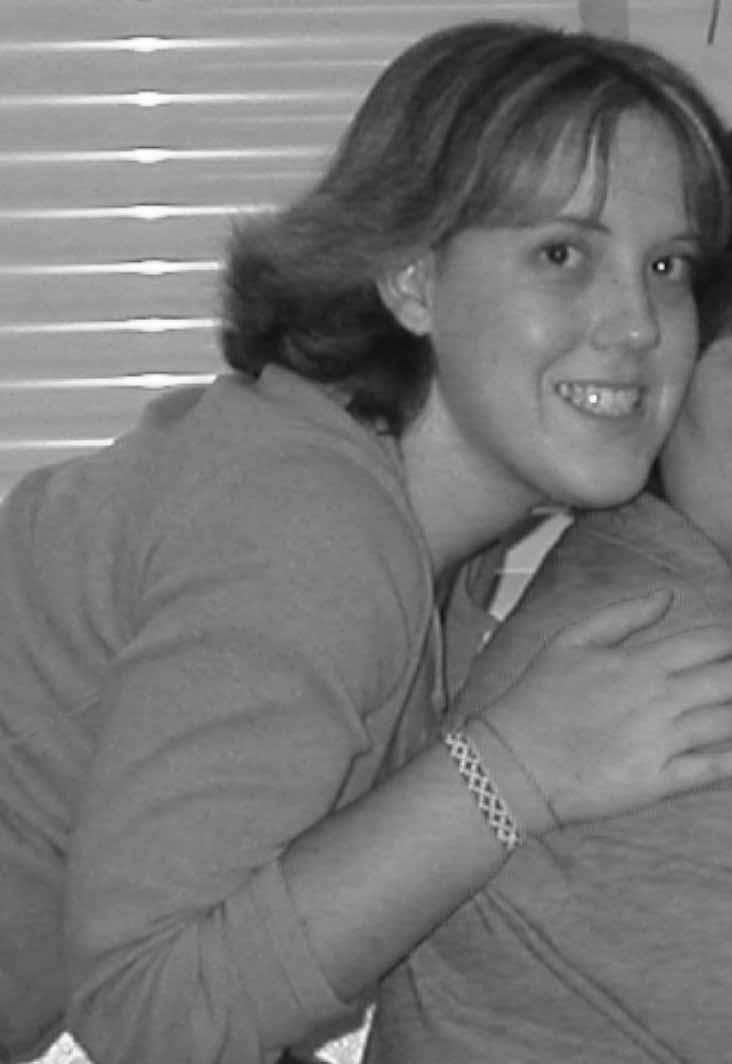 Shoshana Beran is a 19 year old Junior at
Scripps College who is majoring in Psychology with a Jewish studies
minor. She has had generalized dystonia for 12 years and began
noticing symptoms around the age of 8 when she was in third grade.
Her handwriting was affected and she began seeing tremor in her
hands, so the testing began. It was not until almost two years
later, at the beginning of 5th grade, that she was finally diagnosed
with dystonia and the doctors located the DYT1 gene. Over the years,
her symptoms progressively worsened. The tremor spread to her arms,
shoulders, neck, and she had stiffness in my hips, back and ankles.
The pain slowly became more and more unbearable. She tried many
medications and her freshman year of high school she began receiving
Botox injections in her neck. She was unable to write or type, and
had trouble with every day tasks like cutting her food and tying her
shoes. The summer before her senior year of high school she was
offered, for the first time, the opportunity to have DBS surgery.
At that point, she was having trouble walking long distances due to
the pain. She jumped at the opportunity. She says that it was,
by far, the best decision she has ever made! So, during the Spring
semester (February and April 2001) she had the DBS surgery at UCSF
Med Center with Dr. Starr and Dr. Marks. She was 17 at the time.
Within the next 6 months she began seeing improvements and has been
seeing them ever since. Later that year, in the Fall, she began her
freshman year at Scripps College in Claremont, CA. She says that
people she meets now would never guess that she has Dystonia!
Shoshana is with us today to share her story and to answer any
questions that we might have about her experience with the Deep
Brain Stimulator surgery. Shoshana Beran is a 19 year old Junior at
Scripps College who is majoring in Psychology with a Jewish studies
minor. She has had generalized dystonia for 12 years and began
noticing symptoms around the age of 8 when she was in third grade.
Her handwriting was affected and she began seeing tremor in her
hands, so the testing began. It was not until almost two years
later, at the beginning of 5th grade, that she was finally diagnosed
with dystonia and the doctors located the DYT1 gene. Over the years,
her symptoms progressively worsened. The tremor spread to her arms,
shoulders, neck, and she had stiffness in my hips, back and ankles.
The pain slowly became more and more unbearable. She tried many
medications and her freshman year of high school she began receiving
Botox injections in her neck. She was unable to write or type, and
had trouble with every day tasks like cutting her food and tying her
shoes. The summer before her senior year of high school she was
offered, for the first time, the opportunity to have DBS surgery.
At that point, she was having trouble walking long distances due to
the pain. She jumped at the opportunity. She says that it was,
by far, the best decision she has ever made! So, during the Spring
semester (February and April 2001) she had the DBS surgery at UCSF
Med Center with Dr. Starr and Dr. Marks. She was 17 at the time.
Within the next 6 months she began seeing improvements and has been
seeing them ever since. Later that year, in the Fall, she began her
freshman year at Scripps College in Claremont, CA. She says that
people she meets now would never guess that she has Dystonia!
Shoshana is with us today to share her story and to answer any
questions that we might have about her experience with the Deep
Brain Stimulator surgery.
|
|
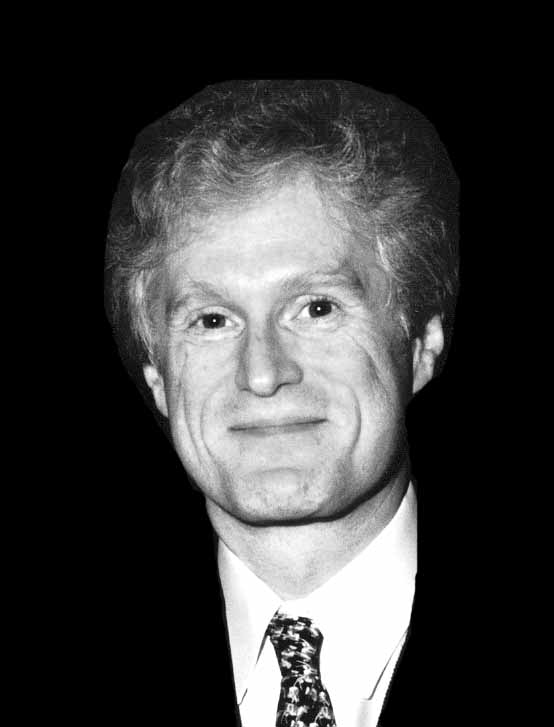 Mitchell Brin, M.D.
received his M.D. degree from Columbia University College of
Physicians & Surgeons. He completed an internship in medicine at the
Mt. Sinai Medical Center, and his neurology & Fellowship training at
the Neurological Institute at Columbia University, where he
subsequently became an Asst. Prof., & Coordinator of the Dystonia
Clinical Research Center. In 1994, Dr. Brin joined the staff at the
Mt. Sinai Medical Center and subsequently received the
Bachmann-Strauss Endowed Chair in Neurology and was promoted to
Professor. Dr. Brin has published extensively on movement disorders,
and has committed most of his professional life to understanding the
genetics of dystonia, finding more effective treatments for dystonia
and other movement disorders, and cures for neuro-degenerative
disorders. As Director of the Movement Disorder Program at Sinai, he
was responsible for the patient care and research operations of the
Center, with strong interaction with genetic studies, pharmacology
research, and research database management. He was Principal
Investigator of many ongoing clinical studies, and served as the
primary clinical interface between the therapeutic program and the
basic science laboratories. He is the past-President of WE MOVE and
has served on the Medical Advisory Board of the Bachmann-Strauss
Foundation, Dystonia Medical Research Foundation, National Spasmodic
Torticollis Association, and as a Director of the Bachmann-Strauss
Dystonia-Parkinson Foundation and WE MOVE. He was one of the first
investigators to examine the use of botulinum toxin for the
treatment of medical disorders including blepharospasm, hemifacial
spasm, torticollis (cervical dystonia), laryngeal dystonia,
oromandibular dystonia, writer’s cramp, occupational cramps,
spasticity due to many etiologies, migraine headache and cosmetic
conditions. He designed and conducted double blind studies examining
the use of botulinum toxin for numerous conditions. He founded the
American Academy of Neurology Course on Botulinum Toxin, has
organized numerous courses and symposia on botulinum toxin, and has
published extensively on this subject. Dr. Brin became Allergan,
Inc. the Vice-President of Development and Therapeutic Area Head,
BOTOX®/Neurology in Jan. 2001. In this capacity, he oversees the
Global Development program for therapeutic neurotoxins and neurology
research. He continues to publish actively and maintains his
Professorship at UC Irvine with an adjunct Professorship at the Mt.
Sinai School of
Medicine. Mitchell Brin, M.D.
received his M.D. degree from Columbia University College of
Physicians & Surgeons. He completed an internship in medicine at the
Mt. Sinai Medical Center, and his neurology & Fellowship training at
the Neurological Institute at Columbia University, where he
subsequently became an Asst. Prof., & Coordinator of the Dystonia
Clinical Research Center. In 1994, Dr. Brin joined the staff at the
Mt. Sinai Medical Center and subsequently received the
Bachmann-Strauss Endowed Chair in Neurology and was promoted to
Professor. Dr. Brin has published extensively on movement disorders,
and has committed most of his professional life to understanding the
genetics of dystonia, finding more effective treatments for dystonia
and other movement disorders, and cures for neuro-degenerative
disorders. As Director of the Movement Disorder Program at Sinai, he
was responsible for the patient care and research operations of the
Center, with strong interaction with genetic studies, pharmacology
research, and research database management. He was Principal
Investigator of many ongoing clinical studies, and served as the
primary clinical interface between the therapeutic program and the
basic science laboratories. He is the past-President of WE MOVE and
has served on the Medical Advisory Board of the Bachmann-Strauss
Foundation, Dystonia Medical Research Foundation, National Spasmodic
Torticollis Association, and as a Director of the Bachmann-Strauss
Dystonia-Parkinson Foundation and WE MOVE. He was one of the first
investigators to examine the use of botulinum toxin for the
treatment of medical disorders including blepharospasm, hemifacial
spasm, torticollis (cervical dystonia), laryngeal dystonia,
oromandibular dystonia, writer’s cramp, occupational cramps,
spasticity due to many etiologies, migraine headache and cosmetic
conditions. He designed and conducted double blind studies examining
the use of botulinum toxin for numerous conditions. He founded the
American Academy of Neurology Course on Botulinum Toxin, has
organized numerous courses and symposia on botulinum toxin, and has
published extensively on this subject. Dr. Brin became Allergan,
Inc. the Vice-President of Development and Therapeutic Area Head,
BOTOX®/Neurology in Jan. 2001. In this capacity, he oversees the
Global Development program for therapeutic neurotoxins and neurology
research. He continues to publish actively and maintains his
Professorship at UC Irvine with an adjunct Professorship at the Mt.
Sinai School of
Medicine. |
|
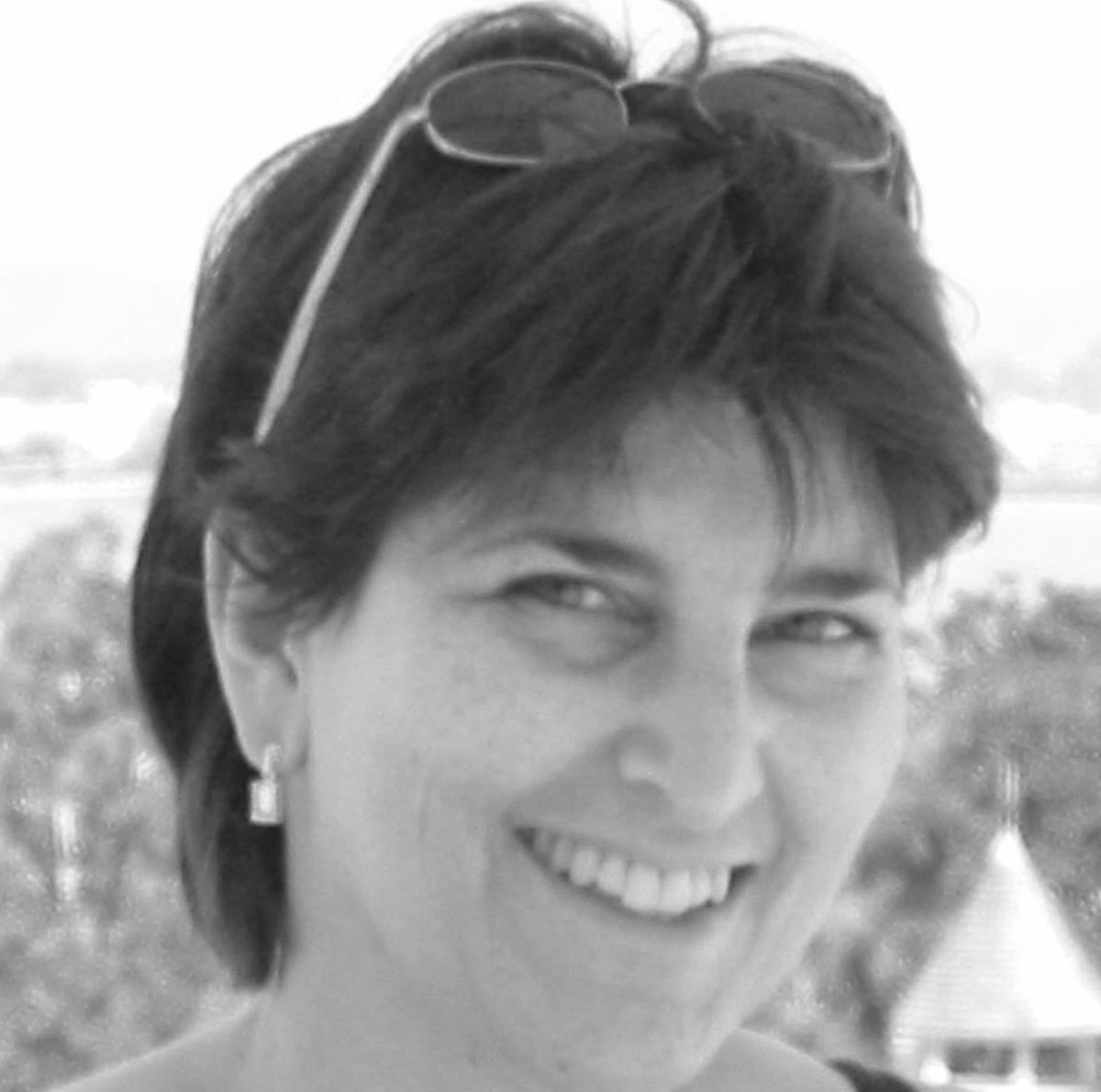 Deborah De Leon,
M.S. received her B.A. in Arts & Sciences from Penn State and an
M.S. in Human Genetics at Sarah Lawrence College. She was a
researcher at Columbia University and then Beth Israel Med. Center.
She coordinated genetic research studies with Stanley Fahn, Susan
Bressman and Mitchell Brin, and also with Xandra Breakefield and
Laurie Ozelius in the lab. She was on the team that discovered the
DYT1 gene. She started the first genetic testing for DYT1. Deborah
is board certified in genetic counseling, and has counseled many
families with various forms of Dystonia and other neurogenetic
disorders, as well. Deborah De Leon,
M.S. received her B.A. in Arts & Sciences from Penn State and an
M.S. in Human Genetics at Sarah Lawrence College. She was a
researcher at Columbia University and then Beth Israel Med. Center.
She coordinated genetic research studies with Stanley Fahn, Susan
Bressman and Mitchell Brin, and also with Xandra Breakefield and
Laurie Ozelius in the lab. She was on the team that discovered the
DYT1 gene. She started the first genetic testing for DYT1. Deborah
is board certified in genetic counseling, and has counseled many
families with various forms of Dystonia and other neurogenetic
disorders, as well. |
|
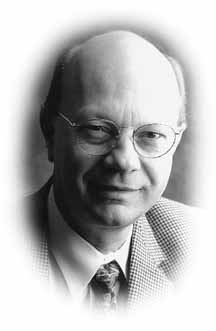 Mahlon DeLong, M.D.
Dr. DeLong is the William Timmie Professor and Chairman of the
Department of Neurology at the Emory University School of Medicine.
Dr. DeLong has played a major role in clarifying the functional
organization of the basal ganglia and the role of these structures
in the pathophysiology of movement disorders such as Parkinson's
disease. He and his colleagues proposed the now widely accepted
concept of functionally segregated basal ganglia-thalamocortical
circuits, which has helped to clarify the diverse role of the basal
ganglia in motor, cognitive and emotional functions. He carried out
important studies in primate models of Parkinson’s and other
movement disorders that provided fundamental insight into the
underlying mechanisms of these disorders. His studies helped to
renew interest in new surgical approaches to treatment of movement
disorders. Dr. DeLong and his colleagues have carried out major
clinical trials of pallidotomy and deep brain stimulation for
Parkinson's Disease. Dr. DeLong received a Javitz Neuroscience
Investigator Award from the NINDS for his research. In 1997 Dr.
DeLong received the Alfred E. Springer Award by the APDA and was
elected to membership in the Johns Hopkins Society of Scholars. He
served on the Advisory Council of the NINDS from 1996-2000. He
serves on the Editorial Board of several scientific journals and
government and private foundation advisory panels. He is also the
Scientific Director of the Dystonia Medical Research Foundation and
is on the Scientific Advisory Board of the APDA. Health Americas has
recognized Dr. DeLong as one of the Top Doctors in Neurology for the
treatment of movement disorders. Mahlon DeLong, M.D.
Dr. DeLong is the William Timmie Professor and Chairman of the
Department of Neurology at the Emory University School of Medicine.
Dr. DeLong has played a major role in clarifying the functional
organization of the basal ganglia and the role of these structures
in the pathophysiology of movement disorders such as Parkinson's
disease. He and his colleagues proposed the now widely accepted
concept of functionally segregated basal ganglia-thalamocortical
circuits, which has helped to clarify the diverse role of the basal
ganglia in motor, cognitive and emotional functions. He carried out
important studies in primate models of Parkinson’s and other
movement disorders that provided fundamental insight into the
underlying mechanisms of these disorders. His studies helped to
renew interest in new surgical approaches to treatment of movement
disorders. Dr. DeLong and his colleagues have carried out major
clinical trials of pallidotomy and deep brain stimulation for
Parkinson's Disease. Dr. DeLong received a Javitz Neuroscience
Investigator Award from the NINDS for his research. In 1997 Dr.
DeLong received the Alfred E. Springer Award by the APDA and was
elected to membership in the Johns Hopkins Society of Scholars. He
served on the Advisory Council of the NINDS from 1996-2000. He
serves on the Editorial Board of several scientific journals and
government and private foundation advisory panels. He is also the
Scientific Director of the Dystonia Medical Research Foundation and
is on the Scientific Advisory Board of the APDA. Health Americas has
recognized Dr. DeLong as one of the Top Doctors in Neurology for the
treatment of movement disorders. |
|
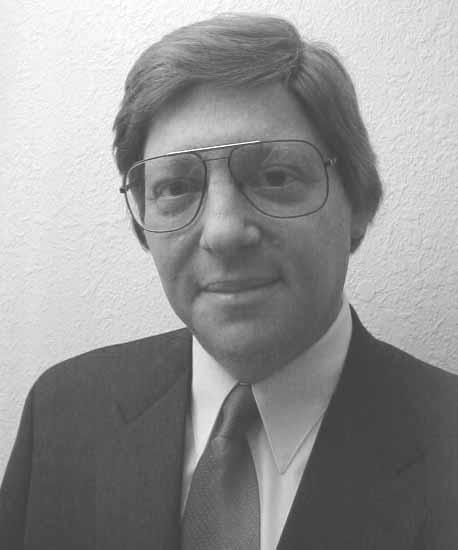 Glen Estrin had to end an illustrious
23-year career as a professional musician when afflicted with focal
Dystonia of the lips and jaws. He performed on French horn with
everyone from Johnny Mathis to the Chicago Symphony Orchestra, and
toured throughout the U.S. and the world with Frank Sinatra. He can
be heard on Grammy-winning recordings with Mr. Sinatra, Tony Bennett
and Patti Page. In 1999, he founded the Musicians with Dystonia
program of the Dystonia Medical Research Foundation with his
neurologist, Dr. Steven Frucht of New York's Columbia Presbyterian
Hospital. Since then he has devoted his time and efforts to
assisting the affected musical population and also all people with
Dystonia. Glen Estrin had to end an illustrious
23-year career as a professional musician when afflicted with focal
Dystonia of the lips and jaws. He performed on French horn with
everyone from Johnny Mathis to the Chicago Symphony Orchestra, and
toured throughout the U.S. and the world with Frank Sinatra. He can
be heard on Grammy-winning recordings with Mr. Sinatra, Tony Bennett
and Patti Page. In 1999, he founded the Musicians with Dystonia
program of the Dystonia Medical Research Foundation with his
neurologist, Dr. Steven Frucht of New York's Columbia Presbyterian
Hospital. Since then he has devoted his time and efforts to
assisting the affected musical population and also all people with
Dystonia.
|
|
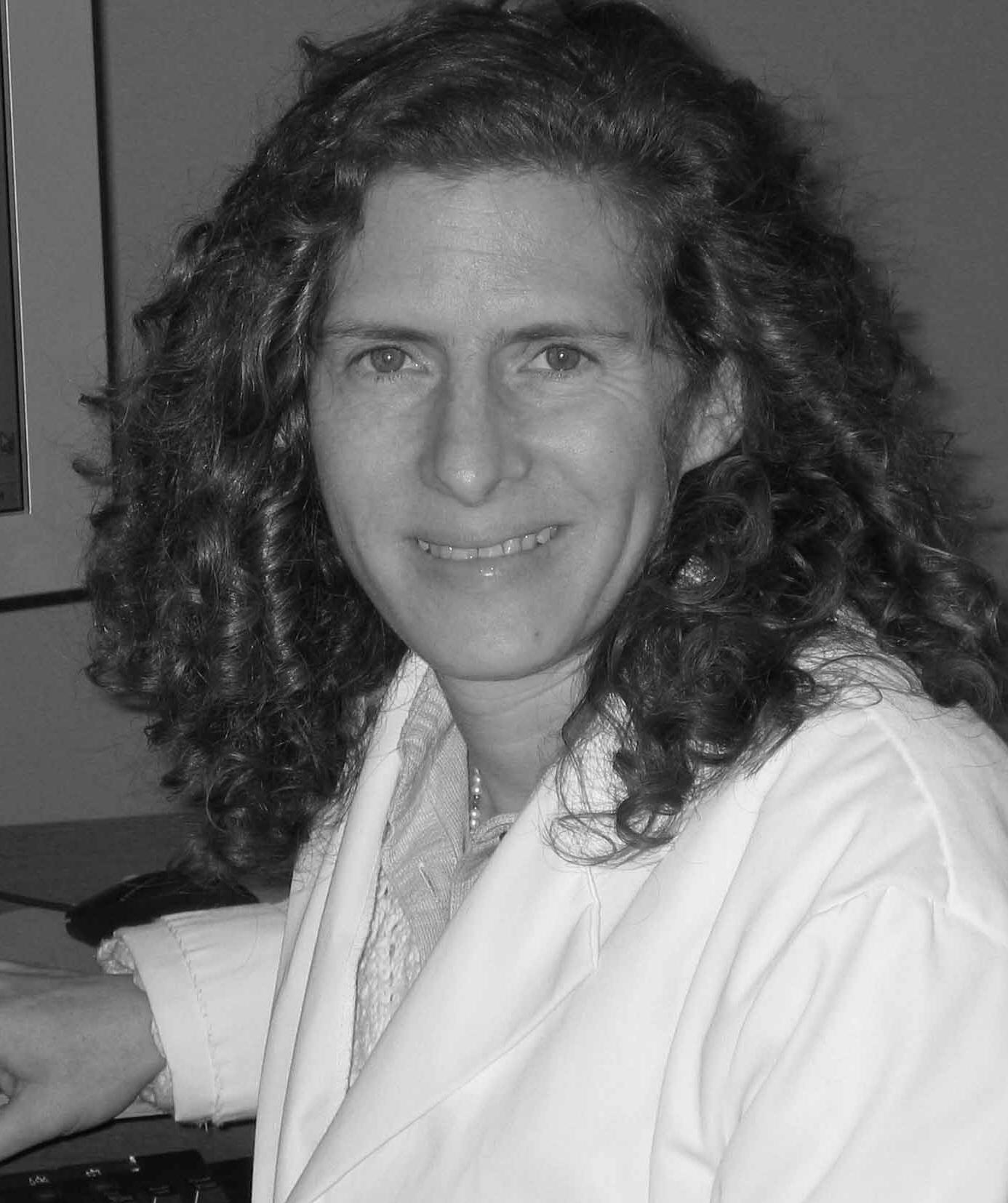 Jennifer Friedman,
M.D. is a Movement Disorder Specialist and has been the Director
of the Dystonia Clinic at Massachusetts General in Boston since
1998. She completed her B.A. degree at Princeton University and her
M.D. degree at Stanford. She did a fellowship in Movement Disorders
at Boston University Medical Center as well as a fellowship in
Clinical Neurogenetics/Dystonia at Massachusetts General Hospital.
She serves as an instructor at Harvard Medical School. She is a
member of the Dystonia Study Group as well as the Therapeutics
Subgroup with the Dystonia Medical Research Foundation (DMRF). She
is currently working on a grant entitled “Motor Learning in DYT1
Dystonia.” Dr. Friedman has just recently relocated to the San Diego
area to continue her clinical practice and research. Jennifer Friedman,
M.D. is a Movement Disorder Specialist and has been the Director
of the Dystonia Clinic at Massachusetts General in Boston since
1998. She completed her B.A. degree at Princeton University and her
M.D. degree at Stanford. She did a fellowship in Movement Disorders
at Boston University Medical Center as well as a fellowship in
Clinical Neurogenetics/Dystonia at Massachusetts General Hospital.
She serves as an instructor at Harvard Medical School. She is a
member of the Dystonia Study Group as well as the Therapeutics
Subgroup with the Dystonia Medical Research Foundation (DMRF). She
is currently working on a grant entitled “Motor Learning in DYT1
Dystonia.” Dr. Friedman has just recently relocated to the San Diego
area to continue her clinical practice and research. |
|
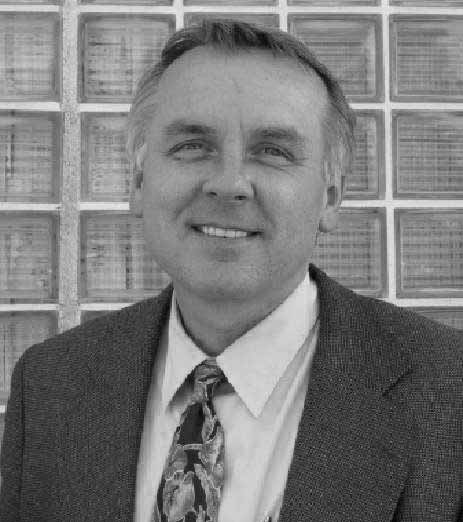 Neal Hermanowicz,
M.D. is the Medical Advisor for the Pacific Regional Dystonia
Patient Symposium. He is Director of the Movement Disorders Program
and Associate Professor and Vice-Chair of Clinical Affairs in the
Dept. of Neurology at UC Irvine. Originally from central Illinois,
Dr. Hermanowicz received his Bachelor of Science degree from the
University of Illinois in Champaign-Urbana. After graduate studies
at MIT and Penn State, Dr. Hermanowicz received the MD degree from
Temple University School of Medicine in Philadelphia. He then
returned to the Midwest for his internship in Internal Medicine and
residency in Neurology at the University of Wisconsin. Dr.
Hermanowicz then completed two years of fellowship training in
Movement Disorders at the University of Michigan under the direction
of Dr. Anne Young & the late Dr. Jack Penney. During this time he
was also a visiting fellow in Movement Disorders at the National
Hospital for Neurology and Neurosurgery in London, England. Prior to
joining the faculty at UCI, Dr. Hermanowicz held clinical faculty
appointments at the University of New Mexico and Northwestern
University. His research interests include nonpharmacological
treatments of Parkinson’s disease and new applications of botulinum
toxin. Neal Hermanowicz,
M.D. is the Medical Advisor for the Pacific Regional Dystonia
Patient Symposium. He is Director of the Movement Disorders Program
and Associate Professor and Vice-Chair of Clinical Affairs in the
Dept. of Neurology at UC Irvine. Originally from central Illinois,
Dr. Hermanowicz received his Bachelor of Science degree from the
University of Illinois in Champaign-Urbana. After graduate studies
at MIT and Penn State, Dr. Hermanowicz received the MD degree from
Temple University School of Medicine in Philadelphia. He then
returned to the Midwest for his internship in Internal Medicine and
residency in Neurology at the University of Wisconsin. Dr.
Hermanowicz then completed two years of fellowship training in
Movement Disorders at the University of Michigan under the direction
of Dr. Anne Young & the late Dr. Jack Penney. During this time he
was also a visiting fellow in Movement Disorders at the National
Hospital for Neurology and Neurosurgery in London, England. Prior to
joining the faculty at UCI, Dr. Hermanowicz held clinical faculty
appointments at the University of New Mexico and Northwestern
University. His research interests include nonpharmacological
treatments of Parkinson’s disease and new applications of botulinum
toxin. |
|
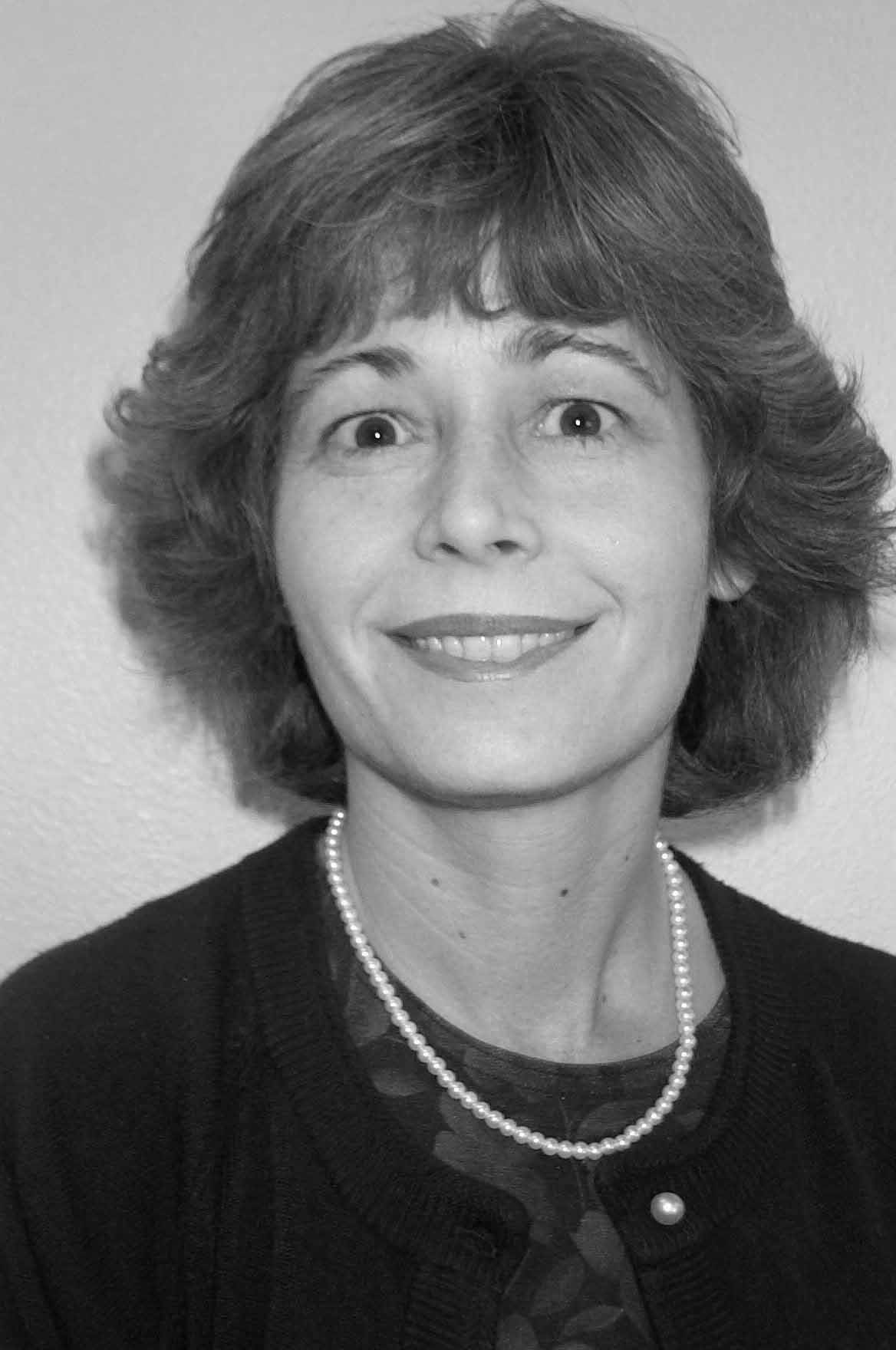 Mary
Hudson-McKinney, DPT, NCS (Neurologic Clinical Specialist) is an
Adjunct Assistant Professor of Clinical Physical Therapy at
University of Southern California, Los Angeles and a Registered
Physical Therapist. She is also a Physical Therapist and Neuro
Clinical Specialist for outpatient private practice at England
Physical Therapy in Garden Grove, CA. Mary did her undergraduate
work at CSU, Northridge, and completed both her Master’s degree, and
her Doctorate degree at University of Southern California, Los
Angeles with all degrees being in the field of Biokinesiology and
Physical Therapy. Mary also worked as a PT/NCS at USC PT Associates,
USC University Hospital, and USC Movement Disorders and Parkinson’s
Clinic in Los Angeles for a number of years. Mary has a special
interest in Physical Therapy for the treatment of Dystonia, which
includes utilizing postural control and alignment to help increase
ease of movement and decrease pain. Mary
Hudson-McKinney, DPT, NCS (Neurologic Clinical Specialist) is an
Adjunct Assistant Professor of Clinical Physical Therapy at
University of Southern California, Los Angeles and a Registered
Physical Therapist. She is also a Physical Therapist and Neuro
Clinical Specialist for outpatient private practice at England
Physical Therapy in Garden Grove, CA. Mary did her undergraduate
work at CSU, Northridge, and completed both her Master’s degree, and
her Doctorate degree at University of Southern California, Los
Angeles with all degrees being in the field of Biokinesiology and
Physical Therapy. Mary also worked as a PT/NCS at USC PT Associates,
USC University Hospital, and USC Movement Disorders and Parkinson’s
Clinic in Los Angeles for a number of years. Mary has a special
interest in Physical Therapy for the treatment of Dystonia, which
includes utilizing postural control and alignment to help increase
ease of movement and decrease pain. |
|
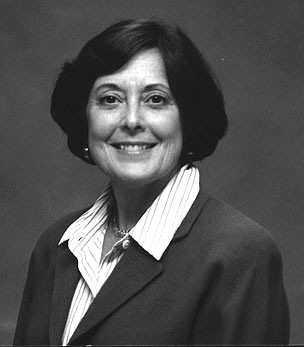 Rosalie Lewis
has been involved with the Dystonia Foundation since 1985 when the
first of her three sons were diagnosed with generalized dystonia.
She has served on the Board of Trustees and has been President since
1998, and has been a committed advocate of the Foundation's mission.
Trained as a teacher and school administrator, Rosalie also serves
on community boards in her home of Rochester, NY. Her efforts in
advocacy of the dystonia community extend to Congress where she
regularly testifies for increased funding of research at the
National Institutes of Health (NIH). Her interest in the funding of
research through collaboration with other dystonia associations has
led to world wide recognition of the combined efforts. Rosalie Lewis
has been involved with the Dystonia Foundation since 1985 when the
first of her three sons were diagnosed with generalized dystonia.
She has served on the Board of Trustees and has been President since
1998, and has been a committed advocate of the Foundation's mission.
Trained as a teacher and school administrator, Rosalie also serves
on community boards in her home of Rochester, NY. Her efforts in
advocacy of the dystonia community extend to Congress where she
regularly testifies for increased funding of research at the
National Institutes of Health (NIH). Her interest in the funding of
research through collaboration with other dystonia associations has
led to world wide recognition of the combined efforts. |
|
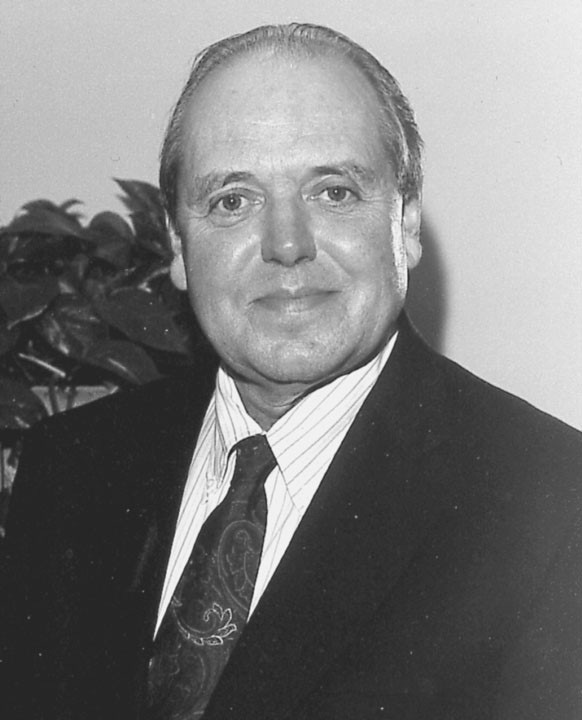 Robert McAlister,
Ph.D. assumed the post of the Dystonia Medical Research
Foundation Executive Director in March 2002. He did his
undergraduate and graduate studies at Rice University in Houston,
Texas, and his doctorate was in the field of parasite physiology.
After a 3-year tour of duty as a Captain in the U.S. Army at Walter
Reed Army Institute of Research, he continued his studies on the
immunology of malaria for the next 10 years, simultaneously earning
tenure and a teaching award at Southern Methodist University in
Dallas, Texas. He was then recruited to start the AIDS education and
surveillance program in the Oregon Health Division, Portland, Oregon
and simultaneously was appointed Clinical Associate Professor of
Public Health and Preventive Medicine at the Oregon Health Sciences
University. He remained in the public health field for 12 years and
then moved to the non-profit arena. He served as Executive Director
of the National Eczema Association from 1998-2002 prior to joining
the Dystonia Medical Research Foundation. Robert McAlister,
Ph.D. assumed the post of the Dystonia Medical Research
Foundation Executive Director in March 2002. He did his
undergraduate and graduate studies at Rice University in Houston,
Texas, and his doctorate was in the field of parasite physiology.
After a 3-year tour of duty as a Captain in the U.S. Army at Walter
Reed Army Institute of Research, he continued his studies on the
immunology of malaria for the next 10 years, simultaneously earning
tenure and a teaching award at Southern Methodist University in
Dallas, Texas. He was then recruited to start the AIDS education and
surveillance program in the Oregon Health Division, Portland, Oregon
and simultaneously was appointed Clinical Associate Professor of
Public Health and Preventive Medicine at the Oregon Health Sciences
University. He remained in the public health field for 12 years and
then moved to the non-profit arena. He served as Executive Director
of the National Eczema Association from 1998-2002 prior to joining
the Dystonia Medical Research Foundation. |
|
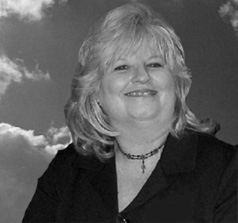 Martha Murphy is
the Leader of the San Diego Dystonia Support Group, a Regional
Co-Coordinator for the Pacific and Northwest and also serves as the
Pacific Patient Advocacy Director for the Dystonia Medical Research
Foundation. She has had Cervical Dystonia for 27 years but was not
correctly diagnosed for almost 12 years. Martha is active in a host
of Foundation activities including convention representation and
symposium organization. Along with her husband and son, Martha
appears on the MYOBLOC promotional materials. She is a volunteer at
her local hospital and has a B.A. in Sociology with Journalism
minor. She is very interested in patient advocacy issues and
networking individuals. Martha Murphy is
the Leader of the San Diego Dystonia Support Group, a Regional
Co-Coordinator for the Pacific and Northwest and also serves as the
Pacific Patient Advocacy Director for the Dystonia Medical Research
Foundation. She has had Cervical Dystonia for 27 years but was not
correctly diagnosed for almost 12 years. Martha is active in a host
of Foundation activities including convention representation and
symposium organization. Along with her husband and son, Martha
appears on the MYOBLOC promotional materials. She is a volunteer at
her local hospital and has a B.A. in Sociology with Journalism
minor. She is very interested in patient advocacy issues and
networking individuals. |
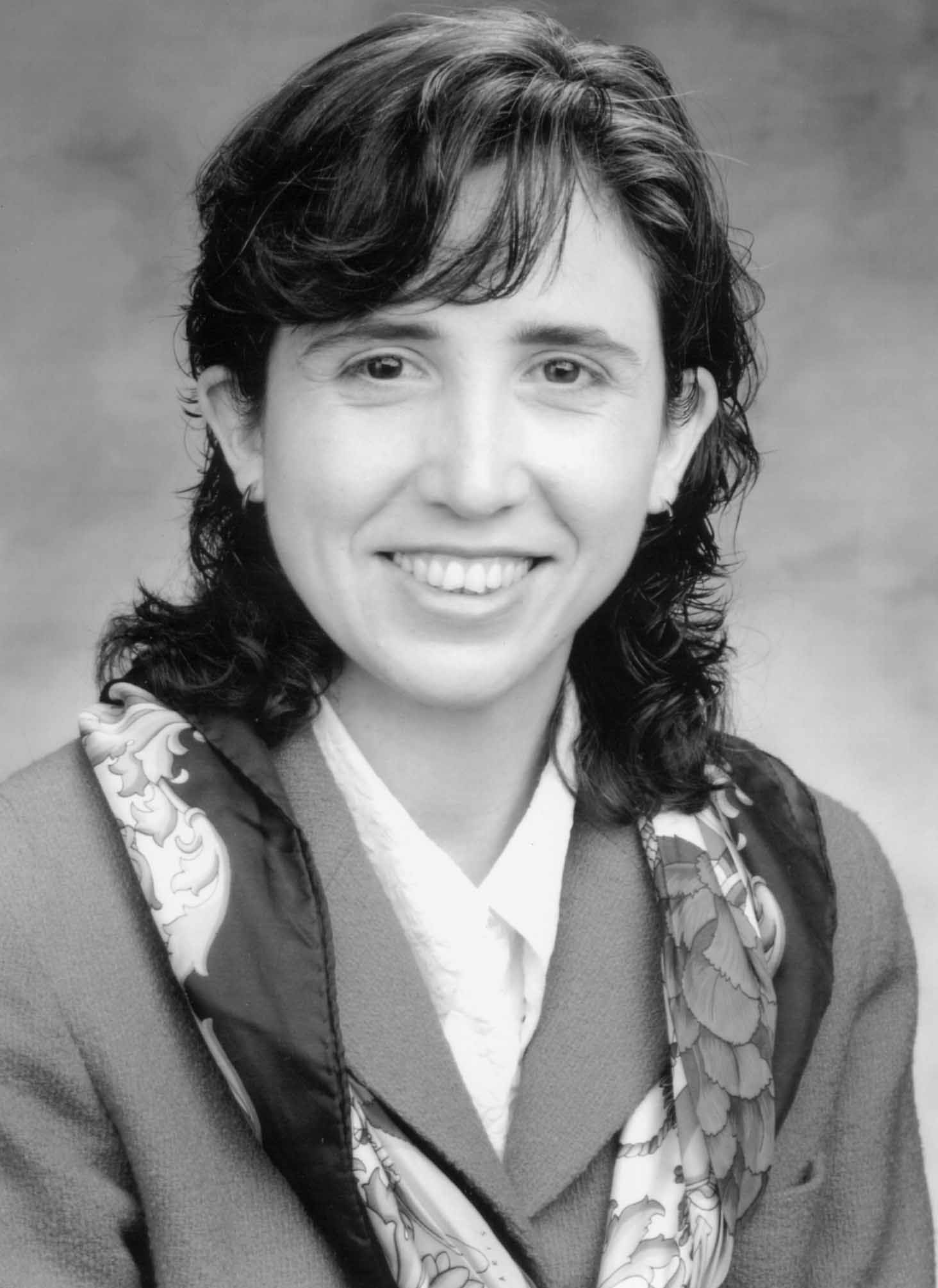 Giselle Petzinger, M.D. is a Movement Disorder Specialist
who completed her fellowship training at Columbia University with
Stanley Fahn. She received her M.D. degree at USC and did her
residency at Yale. She was at the Parkinson’s Institute for 4 years
prior to moving to the University of Southern California where she
has been for 3 years. She sees children with movement disorders and
works in collaboration with the pediatric neurologists at Children's
Hospital, Los Angeles and University of Southern California School
of Medicine. She has an interest in animal models of Movement
Disorders and a particular interest in understanding brain repair of
the basal ganglia (brain structure important in movement disorders)
after injury and factors that influence this repair. Giselle Petzinger, M.D. is a Movement Disorder Specialist
who completed her fellowship training at Columbia University with
Stanley Fahn. She received her M.D. degree at USC and did her
residency at Yale. She was at the Parkinson’s Institute for 4 years
prior to moving to the University of Southern California where she
has been for 3 years. She sees children with movement disorders and
works in collaboration with the pediatric neurologists at Children's
Hospital, Los Angeles and University of Southern California School
of Medicine. She has an interest in animal models of Movement
Disorders and a particular interest in understanding brain repair of
the basal ganglia (brain structure important in movement disorders)
after injury and factors that influence this repair. |
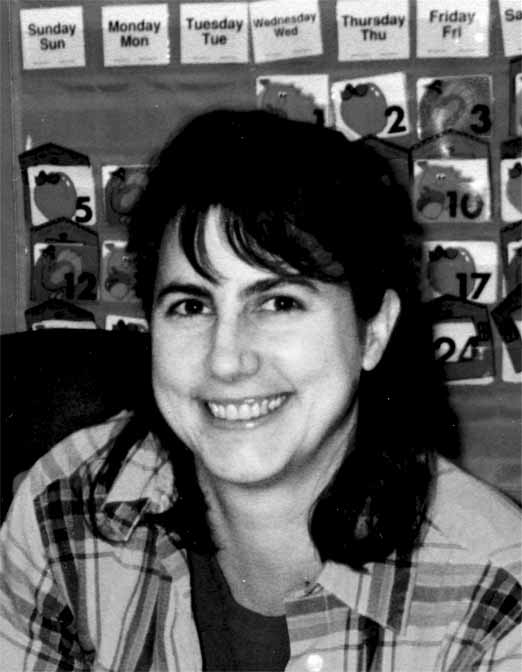 Lesilee Rose, Ph.D. is an Associate Professor in the
Section of Molecular and Cellular Biology at UC Davis. She received
her Bachelor’s degree in Biology at the College of William & Mary
and earned her Doctorate degree in Molecular Biology at Princeton
University. She did her post-doctoral research at Cornell
University. Dr. Rose is a Dystonia Medical Research Foundation grant
recipient and is working on a research study entitled "The OOC-5
Protein, a C. elegans Model for Studying Torsin Protein Function."
Dr. Rose’s work may lead to a greater understanding of the function
of torsinA, the gene product known to be associated with the DYT1
gene (early-onset Dystonia). She is using the small roundworm,
Caenorhabdiitis elegans, as a model system. In this system, the
TorsinA homolog OOC-5 is required for the correct spatial
localization of proteins at the membrane during early development.
Localization of proteins to specific membrane regions is also
critical for the function of neurons, the cells defective in Early
Onset Dystonia. The model organism, C. elegans, is ideally suited to
genetic and molecular research. Current research being funded by the
Dystonia Foundation is aimed at identifying other genes that
function in common with OOC-5. This work should help elucidate the
intracellular function of torsin proteins in general, as well as
identifying new genes whose human homologs could be examined for
roles in Dystonia diseases. Lesilee Rose, Ph.D. is an Associate Professor in the
Section of Molecular and Cellular Biology at UC Davis. She received
her Bachelor’s degree in Biology at the College of William & Mary
and earned her Doctorate degree in Molecular Biology at Princeton
University. She did her post-doctoral research at Cornell
University. Dr. Rose is a Dystonia Medical Research Foundation grant
recipient and is working on a research study entitled "The OOC-5
Protein, a C. elegans Model for Studying Torsin Protein Function."
Dr. Rose’s work may lead to a greater understanding of the function
of torsinA, the gene product known to be associated with the DYT1
gene (early-onset Dystonia). She is using the small roundworm,
Caenorhabdiitis elegans, as a model system. In this system, the
TorsinA homolog OOC-5 is required for the correct spatial
localization of proteins at the membrane during early development.
Localization of proteins to specific membrane regions is also
critical for the function of neurons, the cells defective in Early
Onset Dystonia. The model organism, C. elegans, is ideally suited to
genetic and molecular research. Current research being funded by the
Dystonia Foundation is aimed at identifying other genes that
function in common with OOC-5. This work should help elucidate the
intracellular function of torsin proteins in general, as well as
identifying new genes whose human homologs could be examined for
roles in Dystonia diseases. |
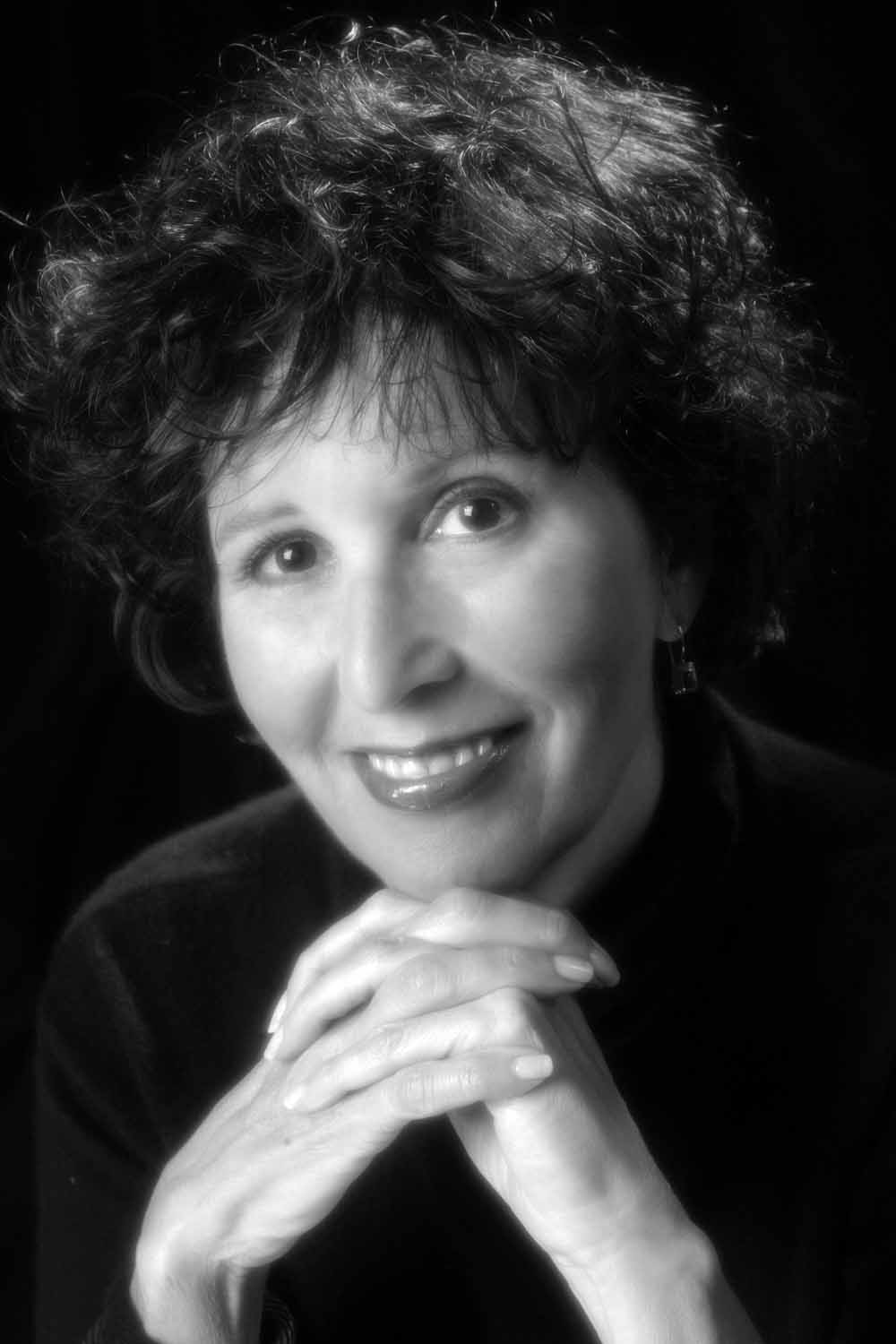 Karen Ross, Ph.D. has been a psychologist and family
therapist for more than 20 years, as well as a long-time Dystonia
Medical Research Foundation (DMRF) Board member. She also recently
became Vice President of Support for DMRF. She is the author of the
book, Holding the Hope: A Parent's Guide to Living with Dystonia.
Karen has an adult son who has early-onset Dystonia. She also
recently developed a new relaxation audio program for Dystonia
patients & caregivers entitled, Calming the Body, Calming the Mind. Karen Ross, Ph.D. has been a psychologist and family
therapist for more than 20 years, as well as a long-time Dystonia
Medical Research Foundation (DMRF) Board member. She also recently
became Vice President of Support for DMRF. She is the author of the
book, Holding the Hope: A Parent's Guide to Living with Dystonia.
Karen has an adult son who has early-onset Dystonia. She also
recently developed a new relaxation audio program for Dystonia
patients & caregivers entitled, Calming the Body, Calming the Mind. |
|
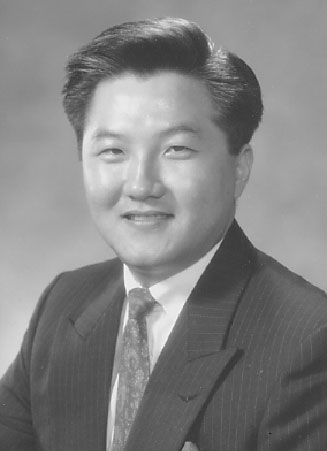 David Song, M.D., Ph.D. is currently an
Assistant Adjunct Professor, Department of Neurosciences at UCSD.
Dr. Song is a Board Certified Neurologist and a Movement Disorder
Specialist who completed his Fellowship training at Strong Memorial
Hospital, University of Rochester Medical Center in Rochester, New
York. The Dystonia clinic at the University of Rochester is one of
the largest in the United States, caring for over 300 patients on a
regular basis. His training included the evaluation and treatment of
Dystonia patients, including the administration of botulinum toxin
injections. He obtained his undergraduate degree in Biology,
Genetics & Development at Cornell University in New York. He
received his M.D., M.P.H., and Ph.D. degrees at Tulane University in
New Orleans. He is a member of the Society for Neuroscience and the
American Academy of Neurology. He is involved in clinical trials for
Parkinson’s Disease and Huntington’s Disease and has written or
contributed to publications in the field of Neurosciences. His
current research interests are in the role of synaptic proteins, in
particular alpha-synuclein, in the development of movement disorders
and neurodegeneration. David Song, M.D., Ph.D. is currently an
Assistant Adjunct Professor, Department of Neurosciences at UCSD.
Dr. Song is a Board Certified Neurologist and a Movement Disorder
Specialist who completed his Fellowship training at Strong Memorial
Hospital, University of Rochester Medical Center in Rochester, New
York. The Dystonia clinic at the University of Rochester is one of
the largest in the United States, caring for over 300 patients on a
regular basis. His training included the evaluation and treatment of
Dystonia patients, including the administration of botulinum toxin
injections. He obtained his undergraduate degree in Biology,
Genetics & Development at Cornell University in New York. He
received his M.D., M.P.H., and Ph.D. degrees at Tulane University in
New Orleans. He is a member of the Society for Neuroscience and the
American Academy of Neurology. He is involved in clinical trials for
Parkinson’s Disease and Huntington’s Disease and has written or
contributed to publications in the field of Neurosciences. His
current research interests are in the role of synaptic proteins, in
particular alpha-synuclein, in the development of movement disorders
and neurodegeneration. |
|
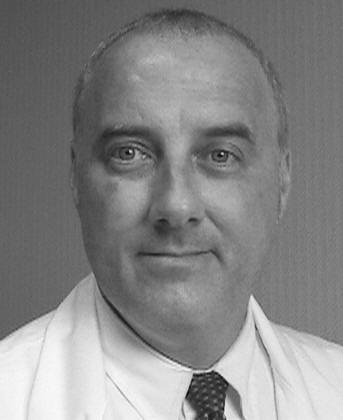 David Swope, M.D. is an Associate
Professor of Neurology and the Clinical Director of Movement
Disorders in the Department of Neurology at Loma Linda University
Medical Center in Loma Linda, CA. Dr. Swope earned his M.D. degree
and completed his Neurology Residency at Loma Linda University, Loma
Linda School of Medicine. He did his Fellowship training in Movement
Disorders at Mt. Sinai Medical Center in New York. His research
interests include Parkinson’s Disease and Dystonia. He has conducted
a number of clinical research trials involving Parkinson’s patients,
as well as clinical trials using Botox to treat migraines and
Dystonia. He is a member of the American Academy of Neurology and
the Movement Disorders Society. Dr. Swope has contributed to a
number of publications in the field of Neurology and Movement
Disorders. David Swope, M.D. is an Associate
Professor of Neurology and the Clinical Director of Movement
Disorders in the Department of Neurology at Loma Linda University
Medical Center in Loma Linda, CA. Dr. Swope earned his M.D. degree
and completed his Neurology Residency at Loma Linda University, Loma
Linda School of Medicine. He did his Fellowship training in Movement
Disorders at Mt. Sinai Medical Center in New York. His research
interests include Parkinson’s Disease and Dystonia. He has conducted
a number of clinical research trials involving Parkinson’s patients,
as well as clinical trials using Botox to treat migraines and
Dystonia. He is a member of the American Academy of Neurology and
the Movement Disorders Society. Dr. Swope has contributed to a
number of publications in the field of Neurology and Movement
Disorders. |
|
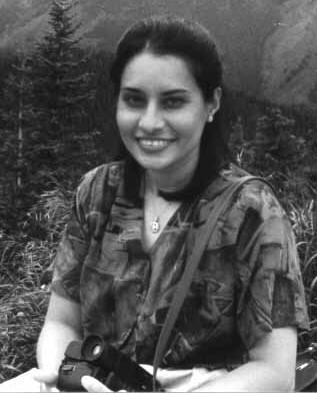 Zeba Vanek, M.D. is an Assistant Professor
of Neurology at UCLA and the Director of the UCLA Spasticity Clinic
for the Movement Disorders and Parkinson’s Disease Program. Her
clinical practice and research focuses on the management of
Parkinson’s disease, tremors, dystonias, other movement disorders,
and spasticity. She also runs a Botulinum Toxin Clinic at UCLA in
which various movement disorders and pain syndromes are treated.
Born and raised in Karachi, Pakistan, Dr. Vanek became fascinated by
how the brain controls the different functions of the human body,
especially the functions of speech, mobility, and abstract thinking.
Dr. Vanek obtained her medical degree from the Dow Medical College
in Karachi, Pakistan, received her postgraduate fellowship training
in movement disorders at Queen Square Institute of Neurology,
London, and did her neurology residency at the Baylor College of
Medicine in Houston. She then began her career at UCLA in the
Division of Neurological Services. During her training in London,
Dr. Vanek had the opportunity to study under the late Professor
David Marsden, one of the pioneers of movement disorders research.
It was then she became interested in the subspecialty of neurology.
Her recent focus is on the management and treatment of movement
disorders and spasticity problems which includes the use of
botulinum toxin injections (Botox and Myobloc). Zeba Vanek, M.D. is an Assistant Professor
of Neurology at UCLA and the Director of the UCLA Spasticity Clinic
for the Movement Disorders and Parkinson’s Disease Program. Her
clinical practice and research focuses on the management of
Parkinson’s disease, tremors, dystonias, other movement disorders,
and spasticity. She also runs a Botulinum Toxin Clinic at UCLA in
which various movement disorders and pain syndromes are treated.
Born and raised in Karachi, Pakistan, Dr. Vanek became fascinated by
how the brain controls the different functions of the human body,
especially the functions of speech, mobility, and abstract thinking.
Dr. Vanek obtained her medical degree from the Dow Medical College
in Karachi, Pakistan, received her postgraduate fellowship training
in movement disorders at Queen Square Institute of Neurology,
London, and did her neurology residency at the Baylor College of
Medicine in Houston. She then began her career at UCLA in the
Division of Neurological Services. During her training in London,
Dr. Vanek had the opportunity to study under the late Professor
David Marsden, one of the pioneers of movement disorders research.
It was then she became interested in the subspecialty of neurology.
Her recent focus is on the management and treatment of movement
disorders and spasticity problems which includes the use of
botulinum toxin injections (Botox and Myobloc). |
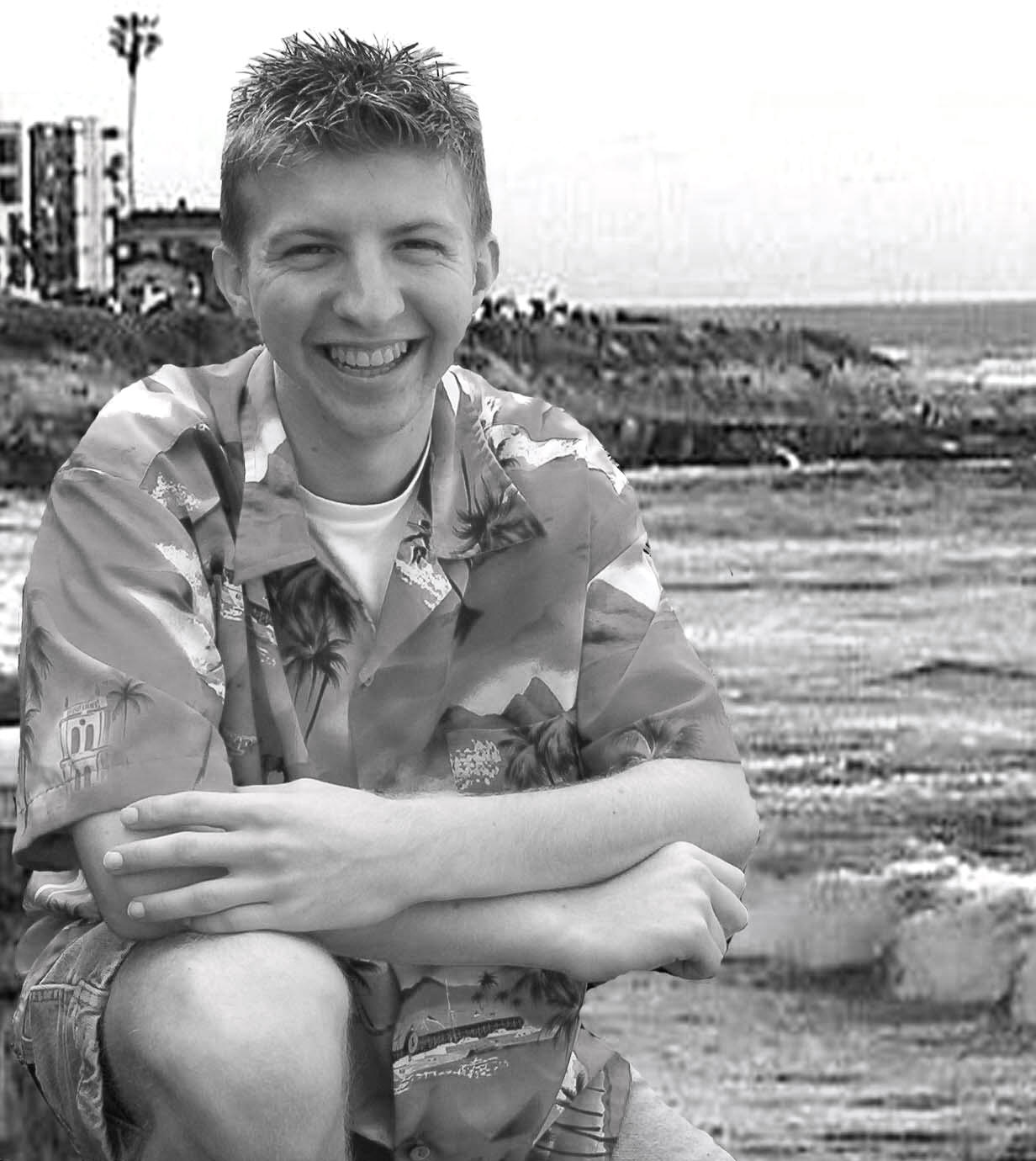 Ryan Murphy is our symposium A/V Coordinator/Technician
and in charge of all of the technical aspects of the symposium. He
will also be videotaping this event. Ryan is attending college and
majoring in Media Communication. Ryan is also Symposium
Co-Coordinator Martha Murphy’s son. Ryan Murphy is our symposium A/V Coordinator/Technician
and in charge of all of the technical aspects of the symposium. He
will also be videotaping this event. Ryan is attending college and
majoring in Media Communication. Ryan is also Symposium
Co-Coordinator Martha Murphy’s son. |
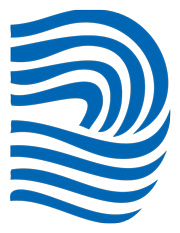
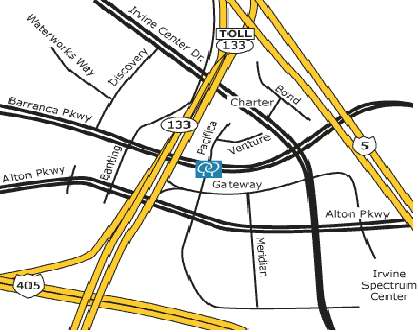
 Shoshana Beran is a 19 year old Junior at
Scripps College who is majoring in Psychology with a Jewish studies
minor. She has had generalized dystonia for 12 years and began
noticing symptoms around the age of 8 when she was in third grade.
Her handwriting was affected and she began seeing tremor in her
hands, so the testing began. It was not until almost two years
later, at the beginning of 5th grade, that she was finally diagnosed
with dystonia and the doctors located the DYT1 gene. Over the years,
her symptoms progressively worsened. The tremor spread to her arms,
shoulders, neck, and she had stiffness in my hips, back and ankles.
The pain slowly became more and more unbearable. She tried many
medications and her freshman year of high school she began receiving
Botox injections in her neck. She was unable to write or type, and
had trouble with every day tasks like cutting her food and tying her
shoes. The summer before her senior year of high school she was
offered, for the first time, the opportunity to have DBS surgery.
At that point, she was having trouble walking long distances due to
the pain. She jumped at the opportunity. She says that it was,
by far, the best decision she has ever made! So, during the Spring
semester (February and April 2001) she had the DBS surgery at UCSF
Med Center with Dr. Starr and Dr. Marks. She was 17 at the time.
Within the next 6 months she began seeing improvements and has been
seeing them ever since. Later that year, in the Fall, she began her
freshman year at Scripps College in Claremont, CA. She says that
people she meets now would never guess that she has Dystonia!
Shoshana is with us today to share her story and to answer any
questions that we might have about her experience with the Deep
Brain Stimulator surgery.
Shoshana Beran is a 19 year old Junior at
Scripps College who is majoring in Psychology with a Jewish studies
minor. She has had generalized dystonia for 12 years and began
noticing symptoms around the age of 8 when she was in third grade.
Her handwriting was affected and she began seeing tremor in her
hands, so the testing began. It was not until almost two years
later, at the beginning of 5th grade, that she was finally diagnosed
with dystonia and the doctors located the DYT1 gene. Over the years,
her symptoms progressively worsened. The tremor spread to her arms,
shoulders, neck, and she had stiffness in my hips, back and ankles.
The pain slowly became more and more unbearable. She tried many
medications and her freshman year of high school she began receiving
Botox injections in her neck. She was unable to write or type, and
had trouble with every day tasks like cutting her food and tying her
shoes. The summer before her senior year of high school she was
offered, for the first time, the opportunity to have DBS surgery.
At that point, she was having trouble walking long distances due to
the pain. She jumped at the opportunity. She says that it was,
by far, the best decision she has ever made! So, during the Spring
semester (February and April 2001) she had the DBS surgery at UCSF
Med Center with Dr. Starr and Dr. Marks. She was 17 at the time.
Within the next 6 months she began seeing improvements and has been
seeing them ever since. Later that year, in the Fall, she began her
freshman year at Scripps College in Claremont, CA. She says that
people she meets now would never guess that she has Dystonia!
Shoshana is with us today to share her story and to answer any
questions that we might have about her experience with the Deep
Brain Stimulator surgery. Mitchell Brin, M.D.
received his M.D. degree from Columbia University College of
Physicians & Surgeons. He completed an internship in medicine at the
Mt. Sinai Medical Center, and his neurology & Fellowship training at
the Neurological Institute at Columbia University, where he
subsequently became an Asst. Prof., & Coordinator of the Dystonia
Clinical Research Center. In 1994, Dr. Brin joined the staff at the
Mt. Sinai Medical Center and subsequently received the
Bachmann-Strauss Endowed Chair in Neurology and was promoted to
Professor. Dr. Brin has published extensively on movement disorders,
and has committed most of his professional life to understanding the
genetics of dystonia, finding more effective treatments for dystonia
and other movement disorders, and cures for neuro-degenerative
disorders. As Director of the Movement Disorder Program at Sinai, he
was responsible for the patient care and research operations of the
Center, with strong interaction with genetic studies, pharmacology
research, and research database management. He was Principal
Investigator of many ongoing clinical studies, and served as the
primary clinical interface between the therapeutic program and the
basic science laboratories. He is the past-President of WE MOVE and
has served on the Medical Advisory Board of the Bachmann-Strauss
Foundation, Dystonia Medical Research Foundation, National Spasmodic
Torticollis Association, and as a Director of the Bachmann-Strauss
Dystonia-Parkinson Foundation and WE MOVE. He was one of the first
investigators to examine the use of botulinum toxin for the
treatment of medical disorders including blepharospasm, hemifacial
spasm, torticollis (cervical dystonia), laryngeal dystonia,
oromandibular dystonia, writer’s cramp, occupational cramps,
spasticity due to many etiologies, migraine headache and cosmetic
conditions. He designed and conducted double blind studies examining
the use of botulinum toxin for numerous conditions. He founded the
American Academy of Neurology Course on Botulinum Toxin, has
organized numerous courses and symposia on botulinum toxin, and has
published extensively on this subject. Dr. Brin became Allergan,
Inc. the Vice-President of Development and Therapeutic Area Head,
BOTOX®/Neurology in Jan. 2001. In this capacity, he oversees the
Global Development program for therapeutic neurotoxins and neurology
research. He continues to publish actively and maintains his
Professorship at UC Irvine with an adjunct Professorship at the Mt.
Sinai School of
Mitchell Brin, M.D.
received his M.D. degree from Columbia University College of
Physicians & Surgeons. He completed an internship in medicine at the
Mt. Sinai Medical Center, and his neurology & Fellowship training at
the Neurological Institute at Columbia University, where he
subsequently became an Asst. Prof., & Coordinator of the Dystonia
Clinical Research Center. In 1994, Dr. Brin joined the staff at the
Mt. Sinai Medical Center and subsequently received the
Bachmann-Strauss Endowed Chair in Neurology and was promoted to
Professor. Dr. Brin has published extensively on movement disorders,
and has committed most of his professional life to understanding the
genetics of dystonia, finding more effective treatments for dystonia
and other movement disorders, and cures for neuro-degenerative
disorders. As Director of the Movement Disorder Program at Sinai, he
was responsible for the patient care and research operations of the
Center, with strong interaction with genetic studies, pharmacology
research, and research database management. He was Principal
Investigator of many ongoing clinical studies, and served as the
primary clinical interface between the therapeutic program and the
basic science laboratories. He is the past-President of WE MOVE and
has served on the Medical Advisory Board of the Bachmann-Strauss
Foundation, Dystonia Medical Research Foundation, National Spasmodic
Torticollis Association, and as a Director of the Bachmann-Strauss
Dystonia-Parkinson Foundation and WE MOVE. He was one of the first
investigators to examine the use of botulinum toxin for the
treatment of medical disorders including blepharospasm, hemifacial
spasm, torticollis (cervical dystonia), laryngeal dystonia,
oromandibular dystonia, writer’s cramp, occupational cramps,
spasticity due to many etiologies, migraine headache and cosmetic
conditions. He designed and conducted double blind studies examining
the use of botulinum toxin for numerous conditions. He founded the
American Academy of Neurology Course on Botulinum Toxin, has
organized numerous courses and symposia on botulinum toxin, and has
published extensively on this subject. Dr. Brin became Allergan,
Inc. the Vice-President of Development and Therapeutic Area Head,
BOTOX®/Neurology in Jan. 2001. In this capacity, he oversees the
Global Development program for therapeutic neurotoxins and neurology
research. He continues to publish actively and maintains his
Professorship at UC Irvine with an adjunct Professorship at the Mt.
Sinai School of  Deborah De Leon,
M.S. received her B.A. in Arts & Sciences from Penn State and an
M.S. in Human Genetics at Sarah Lawrence College. She was a
researcher at Columbia University and then Beth Israel Med. Center.
She coordinated genetic research studies with Stanley Fahn, Susan
Bressman and Mitchell Brin, and also with Xandra Breakefield and
Laurie Ozelius in the lab. She was on the team that discovered the
DYT1 gene. She started the first genetic testing for DYT1. Deborah
is board certified in genetic counseling, and has counseled many
families with various forms of Dystonia and other neurogenetic
disorders, as well.
Deborah De Leon,
M.S. received her B.A. in Arts & Sciences from Penn State and an
M.S. in Human Genetics at Sarah Lawrence College. She was a
researcher at Columbia University and then Beth Israel Med. Center.
She coordinated genetic research studies with Stanley Fahn, Susan
Bressman and Mitchell Brin, and also with Xandra Breakefield and
Laurie Ozelius in the lab. She was on the team that discovered the
DYT1 gene. She started the first genetic testing for DYT1. Deborah
is board certified in genetic counseling, and has counseled many
families with various forms of Dystonia and other neurogenetic
disorders, as well. Mahlon DeLong, M.D.
Dr. DeLong is the William Timmie Professor and Chairman of the
Department of Neurology at the Emory University School of Medicine.
Dr. DeLong has played a major role in clarifying the functional
organization of the basal ganglia and the role of these structures
in the pathophysiology of movement disorders such as Parkinson's
disease. He and his colleagues proposed the now widely accepted
concept of functionally segregated basal ganglia-thalamocortical
circuits, which has helped to clarify the diverse role of the basal
ganglia in motor, cognitive and emotional functions. He carried out
important studies in primate models of Parkinson’s and other
movement disorders that provided fundamental insight into the
underlying mechanisms of these disorders. His studies helped to
renew interest in new surgical approaches to treatment of movement
disorders. Dr. DeLong and his colleagues have carried out major
clinical trials of pallidotomy and deep brain stimulation for
Parkinson's Disease. Dr. DeLong received a Javitz Neuroscience
Investigator Award from the NINDS for his research. In 1997 Dr.
DeLong received the Alfred E. Springer Award by the APDA and was
elected to membership in the Johns Hopkins Society of Scholars. He
served on the Advisory Council of the NINDS from 1996-2000. He
serves on the Editorial Board of several scientific journals and
government and private foundation advisory panels. He is also the
Scientific Director of the Dystonia Medical Research Foundation and
is on the Scientific Advisory Board of the APDA. Health Americas has
recognized Dr. DeLong as one of the Top Doctors in Neurology for the
treatment of movement disorders.
Mahlon DeLong, M.D.
Dr. DeLong is the William Timmie Professor and Chairman of the
Department of Neurology at the Emory University School of Medicine.
Dr. DeLong has played a major role in clarifying the functional
organization of the basal ganglia and the role of these structures
in the pathophysiology of movement disorders such as Parkinson's
disease. He and his colleagues proposed the now widely accepted
concept of functionally segregated basal ganglia-thalamocortical
circuits, which has helped to clarify the diverse role of the basal
ganglia in motor, cognitive and emotional functions. He carried out
important studies in primate models of Parkinson’s and other
movement disorders that provided fundamental insight into the
underlying mechanisms of these disorders. His studies helped to
renew interest in new surgical approaches to treatment of movement
disorders. Dr. DeLong and his colleagues have carried out major
clinical trials of pallidotomy and deep brain stimulation for
Parkinson's Disease. Dr. DeLong received a Javitz Neuroscience
Investigator Award from the NINDS for his research. In 1997 Dr.
DeLong received the Alfred E. Springer Award by the APDA and was
elected to membership in the Johns Hopkins Society of Scholars. He
served on the Advisory Council of the NINDS from 1996-2000. He
serves on the Editorial Board of several scientific journals and
government and private foundation advisory panels. He is also the
Scientific Director of the Dystonia Medical Research Foundation and
is on the Scientific Advisory Board of the APDA. Health Americas has
recognized Dr. DeLong as one of the Top Doctors in Neurology for the
treatment of movement disorders.  Glen Estrin had to end an illustrious
23-year career as a professional musician when afflicted with focal
Dystonia of the lips and jaws. He performed on French horn with
everyone from Johnny Mathis to the Chicago Symphony Orchestra, and
toured throughout the U.S. and the world with Frank Sinatra. He can
be heard on Grammy-winning recordings with Mr. Sinatra, Tony Bennett
and Patti Page. In 1999, he founded the Musicians with Dystonia
program of the Dystonia Medical Research Foundation with his
neurologist, Dr. Steven Frucht of New York's Columbia Presbyterian
Hospital. Since then he has devoted his time and efforts to
assisting the affected musical population and also all people with
Dystonia.
Glen Estrin had to end an illustrious
23-year career as a professional musician when afflicted with focal
Dystonia of the lips and jaws. He performed on French horn with
everyone from Johnny Mathis to the Chicago Symphony Orchestra, and
toured throughout the U.S. and the world with Frank Sinatra. He can
be heard on Grammy-winning recordings with Mr. Sinatra, Tony Bennett
and Patti Page. In 1999, he founded the Musicians with Dystonia
program of the Dystonia Medical Research Foundation with his
neurologist, Dr. Steven Frucht of New York's Columbia Presbyterian
Hospital. Since then he has devoted his time and efforts to
assisting the affected musical population and also all people with
Dystonia.  Jennifer Friedman,
M.D. is a Movement Disorder Specialist and has been the Director
of the Dystonia Clinic at Massachusetts General in Boston since
1998. She completed her B.A. degree at Princeton University and her
M.D. degree at Stanford. She did a fellowship in Movement Disorders
at Boston University Medical Center as well as a fellowship in
Clinical Neurogenetics/Dystonia at Massachusetts General Hospital.
She serves as an instructor at Harvard Medical School. She is a
member of the Dystonia Study Group as well as the Therapeutics
Subgroup with the Dystonia Medical Research Foundation (DMRF). She
is currently working on a grant entitled “Motor Learning in DYT1
Dystonia.” Dr. Friedman has just recently relocated to the San Diego
area to continue her clinical practice and research.
Jennifer Friedman,
M.D. is a Movement Disorder Specialist and has been the Director
of the Dystonia Clinic at Massachusetts General in Boston since
1998. She completed her B.A. degree at Princeton University and her
M.D. degree at Stanford. She did a fellowship in Movement Disorders
at Boston University Medical Center as well as a fellowship in
Clinical Neurogenetics/Dystonia at Massachusetts General Hospital.
She serves as an instructor at Harvard Medical School. She is a
member of the Dystonia Study Group as well as the Therapeutics
Subgroup with the Dystonia Medical Research Foundation (DMRF). She
is currently working on a grant entitled “Motor Learning in DYT1
Dystonia.” Dr. Friedman has just recently relocated to the San Diego
area to continue her clinical practice and research. Neal Hermanowicz,
M.D. is the Medical Advisor for the Pacific Regional Dystonia
Patient Symposium. He is Director of the Movement Disorders Program
and Associate Professor and Vice-Chair of Clinical Affairs in the
Dept. of Neurology at UC Irvine. Originally from central Illinois,
Dr. Hermanowicz received his Bachelor of Science degree from the
University of Illinois in Champaign-Urbana. After graduate studies
at MIT and Penn State, Dr. Hermanowicz received the MD degree from
Temple University School of Medicine in Philadelphia. He then
returned to the Midwest for his internship in Internal Medicine and
residency in Neurology at the University of Wisconsin. Dr.
Hermanowicz then completed two years of fellowship training in
Movement Disorders at the University of Michigan under the direction
of Dr. Anne Young & the late Dr. Jack Penney. During this time he
was also a visiting fellow in Movement Disorders at the National
Hospital for Neurology and Neurosurgery in London, England. Prior to
joining the faculty at UCI, Dr. Hermanowicz held clinical faculty
appointments at the University of New Mexico and Northwestern
University. His research interests include nonpharmacological
treatments of Parkinson’s disease and new applications of botulinum
toxin.
Neal Hermanowicz,
M.D. is the Medical Advisor for the Pacific Regional Dystonia
Patient Symposium. He is Director of the Movement Disorders Program
and Associate Professor and Vice-Chair of Clinical Affairs in the
Dept. of Neurology at UC Irvine. Originally from central Illinois,
Dr. Hermanowicz received his Bachelor of Science degree from the
University of Illinois in Champaign-Urbana. After graduate studies
at MIT and Penn State, Dr. Hermanowicz received the MD degree from
Temple University School of Medicine in Philadelphia. He then
returned to the Midwest for his internship in Internal Medicine and
residency in Neurology at the University of Wisconsin. Dr.
Hermanowicz then completed two years of fellowship training in
Movement Disorders at the University of Michigan under the direction
of Dr. Anne Young & the late Dr. Jack Penney. During this time he
was also a visiting fellow in Movement Disorders at the National
Hospital for Neurology and Neurosurgery in London, England. Prior to
joining the faculty at UCI, Dr. Hermanowicz held clinical faculty
appointments at the University of New Mexico and Northwestern
University. His research interests include nonpharmacological
treatments of Parkinson’s disease and new applications of botulinum
toxin. Mary
Hudson-McKinney, DPT, NCS (Neurologic Clinical Specialist) is an
Adjunct Assistant Professor of Clinical Physical Therapy at
University of Southern California, Los Angeles and a Registered
Physical Therapist. She is also a Physical Therapist and Neuro
Clinical Specialist for outpatient private practice at England
Physical Therapy in Garden Grove, CA. Mary did her undergraduate
work at CSU, Northridge, and completed both her Master’s degree, and
her Doctorate degree at University of Southern California, Los
Angeles with all degrees being in the field of Biokinesiology and
Physical Therapy. Mary also worked as a PT/NCS at USC PT Associates,
USC University Hospital, and USC Movement Disorders and Parkinson’s
Clinic in Los Angeles for a number of years. Mary has a special
interest in Physical Therapy for the treatment of Dystonia, which
includes utilizing postural control and alignment to help increase
ease of movement and decrease pain.
Mary
Hudson-McKinney, DPT, NCS (Neurologic Clinical Specialist) is an
Adjunct Assistant Professor of Clinical Physical Therapy at
University of Southern California, Los Angeles and a Registered
Physical Therapist. She is also a Physical Therapist and Neuro
Clinical Specialist for outpatient private practice at England
Physical Therapy in Garden Grove, CA. Mary did her undergraduate
work at CSU, Northridge, and completed both her Master’s degree, and
her Doctorate degree at University of Southern California, Los
Angeles with all degrees being in the field of Biokinesiology and
Physical Therapy. Mary also worked as a PT/NCS at USC PT Associates,
USC University Hospital, and USC Movement Disorders and Parkinson’s
Clinic in Los Angeles for a number of years. Mary has a special
interest in Physical Therapy for the treatment of Dystonia, which
includes utilizing postural control and alignment to help increase
ease of movement and decrease pain. Rosalie Lewis
has been involved with the Dystonia Foundation since 1985 when the
first of her three sons were diagnosed with generalized dystonia.
She has served on the Board of Trustees and has been President since
1998, and has been a committed advocate of the Foundation's mission.
Trained as a teacher and school administrator, Rosalie also serves
on community boards in her home of Rochester, NY. Her efforts in
advocacy of the dystonia community extend to Congress where she
regularly testifies for increased funding of research at the
National Institutes of Health (NIH). Her interest in the funding of
research through collaboration with other dystonia associations has
led to world wide recognition of the combined efforts.
Rosalie Lewis
has been involved with the Dystonia Foundation since 1985 when the
first of her three sons were diagnosed with generalized dystonia.
She has served on the Board of Trustees and has been President since
1998, and has been a committed advocate of the Foundation's mission.
Trained as a teacher and school administrator, Rosalie also serves
on community boards in her home of Rochester, NY. Her efforts in
advocacy of the dystonia community extend to Congress where she
regularly testifies for increased funding of research at the
National Institutes of Health (NIH). Her interest in the funding of
research through collaboration with other dystonia associations has
led to world wide recognition of the combined efforts. Robert McAlister,
Ph.D. assumed the post of the Dystonia Medical Research
Foundation Executive Director in March 2002. He did his
undergraduate and graduate studies at Rice University in Houston,
Texas, and his doctorate was in the field of parasite physiology.
After a 3-year tour of duty as a Captain in the U.S. Army at Walter
Reed Army Institute of Research, he continued his studies on the
immunology of malaria for the next 10 years, simultaneously earning
tenure and a teaching award at Southern Methodist University in
Dallas, Texas. He was then recruited to start the AIDS education and
surveillance program in the Oregon Health Division, Portland, Oregon
and simultaneously was appointed Clinical Associate Professor of
Public Health and Preventive Medicine at the Oregon Health Sciences
University. He remained in the public health field for 12 years and
then moved to the non-profit arena. He served as Executive Director
of the National Eczema Association from 1998-2002 prior to joining
the Dystonia Medical Research Foundation.
Robert McAlister,
Ph.D. assumed the post of the Dystonia Medical Research
Foundation Executive Director in March 2002. He did his
undergraduate and graduate studies at Rice University in Houston,
Texas, and his doctorate was in the field of parasite physiology.
After a 3-year tour of duty as a Captain in the U.S. Army at Walter
Reed Army Institute of Research, he continued his studies on the
immunology of malaria for the next 10 years, simultaneously earning
tenure and a teaching award at Southern Methodist University in
Dallas, Texas. He was then recruited to start the AIDS education and
surveillance program in the Oregon Health Division, Portland, Oregon
and simultaneously was appointed Clinical Associate Professor of
Public Health and Preventive Medicine at the Oregon Health Sciences
University. He remained in the public health field for 12 years and
then moved to the non-profit arena. He served as Executive Director
of the National Eczema Association from 1998-2002 prior to joining
the Dystonia Medical Research Foundation. Martha Murphy is
the Leader of the San Diego Dystonia Support Group, a Regional
Co-Coordinator for the Pacific and Northwest and also serves as the
Pacific Patient Advocacy Director for the Dystonia Medical Research
Foundation. She has had Cervical Dystonia for 27 years but was not
correctly diagnosed for almost 12 years. Martha is active in a host
of Foundation activities including convention representation and
symposium organization. Along with her husband and son, Martha
appears on the MYOBLOC promotional materials. She is a volunteer at
her local hospital and has a B.A. in Sociology with Journalism
minor. She is very interested in patient advocacy issues and
networking individuals.
Martha Murphy is
the Leader of the San Diego Dystonia Support Group, a Regional
Co-Coordinator for the Pacific and Northwest and also serves as the
Pacific Patient Advocacy Director for the Dystonia Medical Research
Foundation. She has had Cervical Dystonia for 27 years but was not
correctly diagnosed for almost 12 years. Martha is active in a host
of Foundation activities including convention representation and
symposium organization. Along with her husband and son, Martha
appears on the MYOBLOC promotional materials. She is a volunteer at
her local hospital and has a B.A. in Sociology with Journalism
minor. She is very interested in patient advocacy issues and
networking individuals. Giselle Petzinger, M.D. is a Movement Disorder Specialist
who completed her fellowship training at Columbia University with
Stanley Fahn. She received her M.D. degree at USC and did her
residency at Yale. She was at the Parkinson’s Institute for 4 years
prior to moving to the University of Southern California where she
has been for 3 years. She sees children with movement disorders and
works in collaboration with the pediatric neurologists at Children's
Hospital, Los Angeles and University of Southern California School
of Medicine. She has an interest in animal models of Movement
Disorders and a particular interest in understanding brain repair of
the basal ganglia (brain structure important in movement disorders)
after injury and factors that influence this repair.
Giselle Petzinger, M.D. is a Movement Disorder Specialist
who completed her fellowship training at Columbia University with
Stanley Fahn. She received her M.D. degree at USC and did her
residency at Yale. She was at the Parkinson’s Institute for 4 years
prior to moving to the University of Southern California where she
has been for 3 years. She sees children with movement disorders and
works in collaboration with the pediatric neurologists at Children's
Hospital, Los Angeles and University of Southern California School
of Medicine. She has an interest in animal models of Movement
Disorders and a particular interest in understanding brain repair of
the basal ganglia (brain structure important in movement disorders)
after injury and factors that influence this repair. Lesilee Rose, Ph.D. is an Associate Professor in the
Section of Molecular and Cellular Biology at UC Davis. She received
her Bachelor’s degree in Biology at the College of William & Mary
and earned her Doctorate degree in Molecular Biology at Princeton
University. She did her post-doctoral research at Cornell
University. Dr. Rose is a Dystonia Medical Research Foundation grant
recipient and is working on a research study entitled "The OOC-5
Protein, a C. elegans Model for Studying Torsin Protein Function."
Dr. Rose’s work may lead to a greater understanding of the function
of torsinA, the gene product known to be associated with the DYT1
gene (early-onset Dystonia). She is using the small roundworm,
Caenorhabdiitis elegans, as a model system. In this system, the
TorsinA homolog OOC-5 is required for the correct spatial
localization of proteins at the membrane during early development.
Localization of proteins to specific membrane regions is also
critical for the function of neurons, the cells defective in Early
Onset Dystonia. The model organism, C. elegans, is ideally suited to
genetic and molecular research. Current research being funded by the
Dystonia Foundation is aimed at identifying other genes that
function in common with OOC-5. This work should help elucidate the
intracellular function of torsin proteins in general, as well as
identifying new genes whose human homologs could be examined for
roles in Dystonia diseases.
Lesilee Rose, Ph.D. is an Associate Professor in the
Section of Molecular and Cellular Biology at UC Davis. She received
her Bachelor’s degree in Biology at the College of William & Mary
and earned her Doctorate degree in Molecular Biology at Princeton
University. She did her post-doctoral research at Cornell
University. Dr. Rose is a Dystonia Medical Research Foundation grant
recipient and is working on a research study entitled "The OOC-5
Protein, a C. elegans Model for Studying Torsin Protein Function."
Dr. Rose’s work may lead to a greater understanding of the function
of torsinA, the gene product known to be associated with the DYT1
gene (early-onset Dystonia). She is using the small roundworm,
Caenorhabdiitis elegans, as a model system. In this system, the
TorsinA homolog OOC-5 is required for the correct spatial
localization of proteins at the membrane during early development.
Localization of proteins to specific membrane regions is also
critical for the function of neurons, the cells defective in Early
Onset Dystonia. The model organism, C. elegans, is ideally suited to
genetic and molecular research. Current research being funded by the
Dystonia Foundation is aimed at identifying other genes that
function in common with OOC-5. This work should help elucidate the
intracellular function of torsin proteins in general, as well as
identifying new genes whose human homologs could be examined for
roles in Dystonia diseases. Karen Ross, Ph.D. has been a psychologist and family
therapist for more than 20 years, as well as a long-time Dystonia
Medical Research Foundation (DMRF) Board member. She also recently
became Vice President of Support for DMRF. She is the author of the
book, Holding the Hope: A Parent's Guide to Living with Dystonia.
Karen has an adult son who has early-onset Dystonia. She also
recently developed a new relaxation audio program for Dystonia
patients & caregivers entitled, Calming the Body, Calming the Mind.
Karen Ross, Ph.D. has been a psychologist and family
therapist for more than 20 years, as well as a long-time Dystonia
Medical Research Foundation (DMRF) Board member. She also recently
became Vice President of Support for DMRF. She is the author of the
book, Holding the Hope: A Parent's Guide to Living with Dystonia.
Karen has an adult son who has early-onset Dystonia. She also
recently developed a new relaxation audio program for Dystonia
patients & caregivers entitled, Calming the Body, Calming the Mind. David Song, M.D., Ph.D. is currently an
Assistant Adjunct Professor, Department of Neurosciences at UCSD.
Dr. Song is a Board Certified Neurologist and a Movement Disorder
Specialist who completed his Fellowship training at Strong Memorial
Hospital, University of Rochester Medical Center in Rochester, New
York. The Dystonia clinic at the University of Rochester is one of
the largest in the United States, caring for over 300 patients on a
regular basis. His training included the evaluation and treatment of
Dystonia patients, including the administration of botulinum toxin
injections. He obtained his undergraduate degree in Biology,
Genetics & Development at Cornell University in New York. He
received his M.D., M.P.H., and Ph.D. degrees at Tulane University in
New Orleans. He is a member of the Society for Neuroscience and the
American Academy of Neurology. He is involved in clinical trials for
Parkinson’s Disease and Huntington’s Disease and has written or
contributed to publications in the field of Neurosciences. His
current research interests are in the role of synaptic proteins, in
particular alpha-synuclein, in the development of movement disorders
and neurodegeneration.
David Song, M.D., Ph.D. is currently an
Assistant Adjunct Professor, Department of Neurosciences at UCSD.
Dr. Song is a Board Certified Neurologist and a Movement Disorder
Specialist who completed his Fellowship training at Strong Memorial
Hospital, University of Rochester Medical Center in Rochester, New
York. The Dystonia clinic at the University of Rochester is one of
the largest in the United States, caring for over 300 patients on a
regular basis. His training included the evaluation and treatment of
Dystonia patients, including the administration of botulinum toxin
injections. He obtained his undergraduate degree in Biology,
Genetics & Development at Cornell University in New York. He
received his M.D., M.P.H., and Ph.D. degrees at Tulane University in
New Orleans. He is a member of the Society for Neuroscience and the
American Academy of Neurology. He is involved in clinical trials for
Parkinson’s Disease and Huntington’s Disease and has written or
contributed to publications in the field of Neurosciences. His
current research interests are in the role of synaptic proteins, in
particular alpha-synuclein, in the development of movement disorders
and neurodegeneration.  David Swope, M.D. is an Associate
Professor of Neurology and the Clinical Director of Movement
Disorders in the Department of Neurology at Loma Linda University
Medical Center in Loma Linda, CA. Dr. Swope earned his M.D. degree
and completed his Neurology Residency at Loma Linda University, Loma
Linda School of Medicine. He did his Fellowship training in Movement
Disorders at Mt. Sinai Medical Center in New York. His research
interests include Parkinson’s Disease and Dystonia. He has conducted
a number of clinical research trials involving Parkinson’s patients,
as well as clinical trials using Botox to treat migraines and
Dystonia. He is a member of the American Academy of Neurology and
the Movement Disorders Society. Dr. Swope has contributed to a
number of publications in the field of Neurology and Movement
Disorders.
David Swope, M.D. is an Associate
Professor of Neurology and the Clinical Director of Movement
Disorders in the Department of Neurology at Loma Linda University
Medical Center in Loma Linda, CA. Dr. Swope earned his M.D. degree
and completed his Neurology Residency at Loma Linda University, Loma
Linda School of Medicine. He did his Fellowship training in Movement
Disorders at Mt. Sinai Medical Center in New York. His research
interests include Parkinson’s Disease and Dystonia. He has conducted
a number of clinical research trials involving Parkinson’s patients,
as well as clinical trials using Botox to treat migraines and
Dystonia. He is a member of the American Academy of Neurology and
the Movement Disorders Society. Dr. Swope has contributed to a
number of publications in the field of Neurology and Movement
Disorders. Zeba Vanek, M.D. is an Assistant Professor
of Neurology at UCLA and the Director of the UCLA Spasticity Clinic
for the Movement Disorders and Parkinson’s Disease Program. Her
clinical practice and research focuses on the management of
Parkinson’s disease, tremors, dystonias, other movement disorders,
and spasticity. She also runs a Botulinum Toxin Clinic at UCLA in
which various movement disorders and pain syndromes are treated.
Born and raised in Karachi, Pakistan, Dr. Vanek became fascinated by
how the brain controls the different functions of the human body,
especially the functions of speech, mobility, and abstract thinking.
Dr. Vanek obtained her medical degree from the Dow Medical College
in Karachi, Pakistan, received her postgraduate fellowship training
in movement disorders at Queen Square Institute of Neurology,
London, and did her neurology residency at the Baylor College of
Medicine in Houston. She then began her career at UCLA in the
Division of Neurological Services. During her training in London,
Dr. Vanek had the opportunity to study under the late Professor
David Marsden, one of the pioneers of movement disorders research.
It was then she became interested in the subspecialty of neurology.
Her recent focus is on the management and treatment of movement
disorders and spasticity problems which includes the use of
botulinum toxin injections (Botox and Myobloc).
Zeba Vanek, M.D. is an Assistant Professor
of Neurology at UCLA and the Director of the UCLA Spasticity Clinic
for the Movement Disorders and Parkinson’s Disease Program. Her
clinical practice and research focuses on the management of
Parkinson’s disease, tremors, dystonias, other movement disorders,
and spasticity. She also runs a Botulinum Toxin Clinic at UCLA in
which various movement disorders and pain syndromes are treated.
Born and raised in Karachi, Pakistan, Dr. Vanek became fascinated by
how the brain controls the different functions of the human body,
especially the functions of speech, mobility, and abstract thinking.
Dr. Vanek obtained her medical degree from the Dow Medical College
in Karachi, Pakistan, received her postgraduate fellowship training
in movement disorders at Queen Square Institute of Neurology,
London, and did her neurology residency at the Baylor College of
Medicine in Houston. She then began her career at UCLA in the
Division of Neurological Services. During her training in London,
Dr. Vanek had the opportunity to study under the late Professor
David Marsden, one of the pioneers of movement disorders research.
It was then she became interested in the subspecialty of neurology.
Her recent focus is on the management and treatment of movement
disorders and spasticity problems which includes the use of
botulinum toxin injections (Botox and Myobloc).  Ryan Murphy is our symposium A/V Coordinator/Technician
and in charge of all of the technical aspects of the symposium. He
will also be videotaping this event. Ryan is attending college and
majoring in Media Communication. Ryan is also Symposium
Co-Coordinator Martha Murphy’s son.
Ryan Murphy is our symposium A/V Coordinator/Technician
and in charge of all of the technical aspects of the symposium. He
will also be videotaping this event. Ryan is attending college and
majoring in Media Communication. Ryan is also Symposium
Co-Coordinator Martha Murphy’s son.